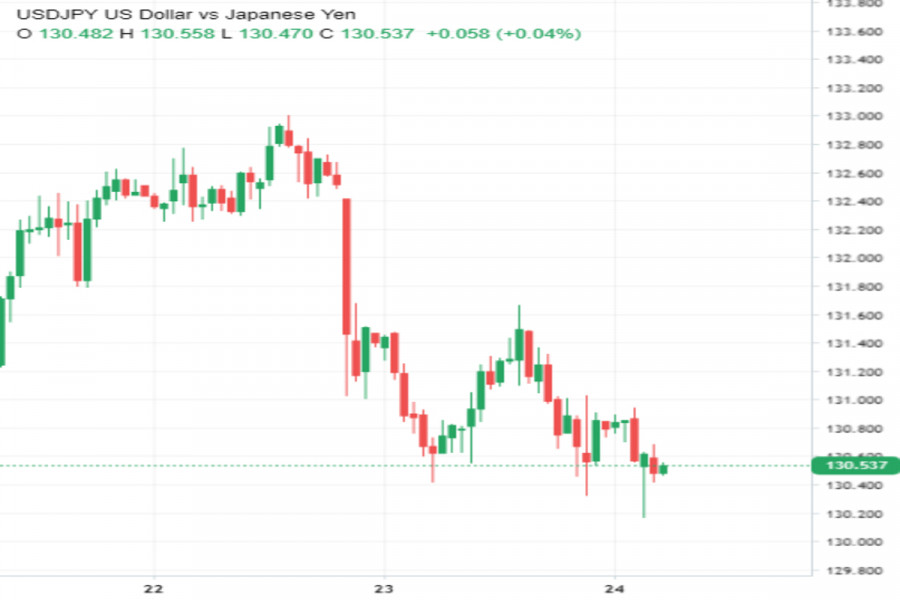Asijské trhy v úterý klesly a následovaly trend nastolený Wall Street, protože dobré údaje z trhu práce v USA vedly k očekávání vyšších úrokových sazeb. Čínské trhy však vynikly tím, že po týdenním volnu prudce vzrostly a pozitivně reagovaly na stimulační opatření oznámená Pekingem. Čínské indexy Shanghai Shenzhen CSI 300 a Shanghai Composite zaznamenaly v počátku obchodování zisky ve výši 6 až 8 % a dosáhly maxim až 13 %. Tyto zisky byly způsobeny jak stimulačními opatřeními, tak lovem výhodných nabídek, protože čínské benchmarkové indexy v září klesly na sedmiměsíční minimum. Ostatní asijské trhy kopírovaly pokles Wall Street, přičemž největší ztráty zaznamenaly technologické akcie v důsledku obav z regulace a negativních komentářů analytiků. Hongkongský index Hang Seng po dosažení ročního maxima klesl o téměř 4 %. Japonské trhy klesly, s výjimkou výdajů domácností, které zůstaly silné, což potenciálně podpořilo inflační očekávání. Jihokorejský index KOSPI a australský ASX 200 rovněž zaznamenaly ztráty, přičemž mezi největší poklesy patřily společnosti Samsung a SK Hynix. Nálada australských spotřebitelů se však v říjnu zlepšila a v Číně panuje optimismus ohledně stimulačních opatření.
USD/JPY continues to slide down, hitting the 1.5-month low of 130.2 early on Friday. Analysts warn that the US dollar's losing streak could continue for quite some time. Why is the US dollar destined to fall against the Japanese yen?
Since Wednesday, USD/JPY slid down by more 2% as bearish traders took the initiative.

Market participants are increasingly hopeful that the interest rate gap between the US and Japan would narrow, sending the pair downwards.
The Federal Reserve's policy meeting for March, which concluded on Wednesday, reinforced optimism of USD/JPY bears.
The latest policy statement by the Fed no longer suggests that continued tightening would be appropriate, a remark that was previously present at every FOMC meeting.
Since the beginning of the rate hike cycle in March 2022, the US central bank has always been very determined to tackle inflation. However, this month's banking sector crisis has overshadowed high inflation.
The Fed's aggressive monetary policy has triggered a wave of bankruptcies in the financial sector.
While the US central bank has already implemented measures to prevent a total collapse of the banking system, Fed Chairman Jerome Powell was visibly uncertain about the future during his post-meeting press conference.
The policymaker tried to convince the market that the US financial system was robust, but did not fully rule out a scenario in which the Fed would be forced to pause monetary tightening.
Instead, Jerome Powell stated that the regulator would make decisions on interest rates keeping in mind the situation in the banking sector.
The Fed Chairman's cautious remarks were interpreted by the market as a sign that the regulator would not only potentially halt rate hikes, but that this pause was imminent.
Most market participants are now pricing in a 100 bps rate decrease by the end of the year, believing that the Fed will not increase the rate this year.
Currently, the gap between American and Japanese interest rates is more than 5%. However, if this gap narrows in the near future, it will put a lot of pressure on USD/JPY.
Speculations regarding a possible capitulation of the Bank of Japan, which are intensifying in the market as the new BOJ chairman prepares to officially take office, are putting additional stress on USD bulls.
Economist Kazuo Ueda, 71, will take over as governor of the Bank of Japan on April 10 and hold his first monetary policy meeting on April 28.
Most analysts predict that the official, described by many as a very pragmatic person, will not immediately make drastic moves in the style of his predecessor Haruhiko Kuroda.
According to experts, Ueda will need time to assess the economic situation in the country, make appropriate conclusions, and develop an optimal monetary strategy.
Most traders are also well aware of that, although speculators will certainly try to take advantage of these expectations.
Analysts warn that in the weeks ahead of the BOJ meeting in April, market participants will speculate on the Bank of Japan's possible policy U-turn, which will push down USD/JPY even more.
During that period, JPY bulls will be closely watching all incoming data, trying to find any factors that might force Ueda to abandon his pragmatic approach and fast-track the shift to a more hawkish policy.
One of those factors emerged today. At the start of Friday's Asian trading session, the Japanese government released the latest inflation data.
At first glance, the data does not appear to be very negative. In February, consumer prices growth (excluding foodstuffs) slowed for the first time in 13 months, falling sharply to 3.1% year-over-year from 4.2% the month before.
Upon a closer look, however, it becomes apparent that this positive reading only masks the underlying inflation increase in Japan.
The core index, which takes into account both fresh food and energy costs, rose 3.5% last month from the 3.2% recorded in January. This is the fastest increase in the index since early 1982.
The core CPI is closely monitored by the Bank of Japan and is considered the main gauge of price changes that reflects consumer demand. Its increase highlights ongoing inflationary pressures in the economy and fuels market speculation that Ueda might have to take a hawkish path sooner.
Inflation has spread beyond energy and is expected to persist for the foreseeable future. Prices of about 3,400 food items were increased in March, double the number of the same month last year, according to a report by Teikoku Databank.
Prices of another 4,900 items are expected to rise. "There are absolutely no signs that the price hikes will end anytime soon," the data firm said in the report.
Earlier, Japanese policymakers repeatedly stated that an inflation upsurge pushed up by rising wages would be the key prerequisite for BOJ reversing its monetary policy.

ĐƯỜNG DẪN NHANH